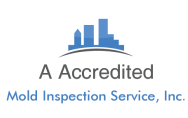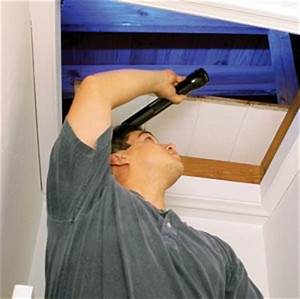 Looking For Our
Looking For Our
Mold Inspector Qualifications?
CLICK HERE.
____________________________________________________________________________________________
If you want to learn about mold inspector qualifications in general, we have provided some helpful information below.
1) State Licensed Mold Inspector or Mold Assessor
In Florida, mold license requirements went into effect in 2010. With a license in place, you would think that all licenses mold inspectors are equally qualified. However, the difference in the level of service and knowledge provided by us is unbelievable. There are very few industries where you can have so many people who are extremely qualified, and so many who are extremely unqualified. In this industry the highly qualified and the very unqualified hold the same license and charge similar fees! Mold inspector licenses fall far short of assuring competency in the industry. When choosing a mold inspector, you must first be sure that they are state licensed. In addition, you must also make sure they have additional qualifications. Such qualifications must go far above and beyond simple Florida state license requirements.
2) Certified Indoor Environmentalist (CIE).
And Certified Indoor Environmental Consultant or (CIEC).
Either of these two certifications CIE or CIEC are the very best to look for when selecting a mold inspector. A typical Florida mold inspector may have two days of training and a state license. CIE’s (Certified Indoor Environmentalists) are require to have at least a two-year degree with an emphasis in science, or at least two years of experience. CIEC’s (Certified Indoor Environmental Consultants) are require to have at least a four-year degree with an emphasis in science, or at least eight years of experience. In addition, they also have a state license if doing mold inspections in the state of Florida. Many CIE’s and CIEC’s also offer a wide range of general indoor air quality consultation services as well. Our inspector is a CIEC.
3) Certified Industrial Hygienists (CIH)
Certified Industrial Hygienists are also great choices when professional mold or indoor air quality investigations are needed. In fact, for commercial and industrial indoor air quality investigations they can rarely be beaten. Certified Industrial hygienists typically have a science degree and some experience in the field. Many have a masters degree in science and a minimum of 5 years of in the field experience. Such is required before taking the difficult test to become a CIH. As you can see, they sometimes have some of the best mold inspector qualifications. If you hire an industrial hygienist to do a mold inspection, make sure they have mold inspection experience.
Industrial Hygienists that investigate mold issues are some of the best mold inspectors. But some of these professionals do not deal with mold at all. Not all industrial hygienists conduct mold inspections, thus not all have the best mold inspector qualifications. For example, some work with sound measurements and help with the control of noise pollution. Others deal with light levels, heavy metals, or airborne particles. Most focus on testing and measuring industrial pollutants such as air born chemicals like volatile organic compounds. They protect workers in indoor industrial settings.
The above referenced certified industrial hygienists may require more education and experience than a (CIE) or (CIEC). However, please be aware that experience may not be related to mold inspections. An industrial hygienist that does not have experience with mold may give a false feeling of security. In addition, industrial hygienists often charge twice as much as most mold professionals.
Hygienist
In the mold field the term hygienist is vague and can have different meanings. Sometimes it is used in a deceptive manner on purpose. Anyone can say “I am a mold hygienist.” The term hygienist in the absence of the words certified and industrial may not refer to any true designation or certification. Let me give you an example. Years ago, before a license was required in Florida a lot of mold remediators used to use the term hygienist. It was used to o refer to all mold inspectors. The term was always used to refer to unlicensed mold inspectors. Back then, no mold license existed for mold inspectors in the state of Florida. Thus, you had hygienists who had no license and no regulations, and sometimes no qualifications at all. And you had certified industrial hygienist who were scientist with years of experience and advanced degrees!
But it gets even more confusing because the word hygienist could refer to a certified industrial hygienist. This is the case if the person using the word was just being lazy and shortened the title certified industrial hygienist to just hygienist.
4) Home Inspectors Who Do Mold Inspections.
Home inspectors offer inspections of a home’s appliances, systems, and structure for prospective buyers before purchase. This is a great service for prospective home buyers wanting to know about a home’s general condition before purchase. Because of a background in building inspection, some become good mold inspectors, however, they all need proper additional training. The two-day mold training courses that are completed by many home inspectors are not adequate. Obtaining the required mold inspection license makes it legal for a home inspector to do mold inspection. However, a mold license alone is not adequate. Home inspectors need much more than a mold assessors license to equip them to do mold inspections. As they say, “A little knowledge is a dangerous thing.”
If a home inspector is not properly trained in the mold industry, then having an inspection conducted by such a person may give you a false since of security. Home inspectors should be trained by a nationally recognized or state recognized home inspection organization such as NAHI, ASHI, or FABI. And in addition, should have additional extensive training and certification in mold inspections and testing.
What are the Problems with Hiring a Poorly Qualified Mold Inspector in Florida?
1) A poorly qualified mold inspector will not have the experience and knowledge needed to do the inspection properly and in a detailed manner. As a result, they may miss a hidden mold problem that a more experienced and qualified inspector may have uncovered. Taking air samples will not tell you where mold is hidden. Your professional needs to be able and willing to spend hours inspecting for red flags (clues to hidden mold problems.) This is how mold is found and this takes years of experience to be done correctly.
2) If you are lucky your poorly qualified mold inspector may find mold during a quick one-hour inspection. You may not have found the same condition yourself. In such a case you got lucky. But that same poorly qualified person might not figure out the cause of your mold. Without understanding the molds underlying cause, you cannot fix the cause. In the absence of fixing the cause, the mold will come back after mold remediation is conducted.
What are the Problems with Poorly Qualified Mold Inspectors Reports?
3) They may not provide a professional written report. Some mold inspectors will give you a lab report only. A lab report will do two things. It will let you know how many spores are in the air. It will let you know the scientific names of the spores. A lab report will never tell you where the mold spores came from, who is at fault, why the mold grew, or what to do next to solve your problem.
4) Some inspectors may provide a mold report but may provide no protocol. What is this protocol, you may ask? The remediation protocol provides detailed information on mold removal recommendations. The protocol may tell exactly where the mold is, and how much drywall should be removed so you do not get ripped off by greedy remediators removing too much drywall. It also discusses what procedures should be followed during removal, and what equipment should be utilized during mold removal.
This link here takes you to the official New York City Mold Removal Guidelines. Though it is from New York, it is not exclusively used in New York. It is possibly the most well-known and widely used mold removal guideline in the nation. It is used across the nation as one of the main resources to go to for mold removal guidance.
So, in conclusion, you better do your research and get a good mold inspector, because all mold inspectors are not the same.
About A Accredited Mold Inspection Service, Inc.
Daryl Watters president of A Accredited mold inspection Service, Inc. Has provided various types of inspections in Florida since the early 1990’s. His experience includes health inspections for the state, home inspections in Palm Beach County, and mold inspections and indoor air quality testing across the entire state of Florida. In addition, we have more 3rd party certifications than our competition. Mr. Watters holds the above referenced CIEC certification. Daryl also holds certifications in mold inspections and mold testing. He also holds certifications in mold remediation, indoor air quality testing, allergen testing, and even fungal spore analysis.
For larger inspections we cover the entire state. On a regular basis our qualified mold inspector provides consultation and mold testing services in:
Palm Beach County
Broward County
- Pembroke Pines
- Ft Lauderdale
- Hallandale Beach
- Coral Springs
- Plantation
- Hollywood
- Parkland
- Weston
- Davie
Dade County Mold
Miami Aventura Miami Beach Coral Gables Coconut Grove



